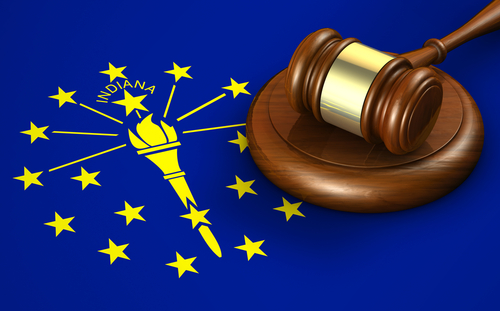Facebooking Judge Catches Lawyer in Lie, Sees Ethical Breaches #ABAChicago
Galveston, Texas-area lawyers on Facebook may want to double-check their friends list, especially if they’re about to appear before Judge Susan Criss.
That’s because Criss, a state court judge who is learning to adapt to social media as a way to connect with long-lost friends and is leveraging Facebook as a judicial campaign tool, has also learned a few things she didn’t expect.
Biggest surprise: Even lawyers don’t fully grasp how public social media is, even when privacy controls are in place.
“Anyone can cut and paste,” said Criss, who was part of a Friday ABA Annual Meeting program “Courts and Media in the 21st Century: Twitterers, Bloggers, the New Media, the Old Media, and What’s a Judge to Do?” sponsored by the ABA’s Judicial Division.
Criss recalled one time that a lawyer asked for a continuance because of the death of her father. The lawyer had earlier posted a string of status updates on Facebook, detailing her week of drinking, going out and partying. But in court, in front of Criss, she told a completely different story.
Then there was the lawyer who complained about having to handle a motion in Criss’s court. Criss playfully zinged her, too—on Facebook, of course.
Criss has seen lawyers on the verge of crossing, if not entirely crossing, ethical lines when they complain about clients and opposing counsel. And she admonished one family member who jeopardized her own tort case by bragging online about how much money she would get from a lawsuit.
The judge’s near-breathless accounts of questionable online activity by members of the bench and bar had many in the audience wondering whether Facebook, Twitter and their ilk are worth the headache.
To Criss, there’s no going back. With self-imposed ground rules—no politics, no blogging about cases—she’s steaming right ahead.
Indeed, she’s among a growing number of lawyers and judges who have begun using Facebook for personal, professional and public interest reasons.
JD Supra this week started an attempt to track lawyers using Facebook, much in the same way it is tracking lawyers on Twitter.
Judges questioned Criss for more details about her ground rules. And they asked whether the ABA should be exploring model rules relating to Twitter and Facebook.
Criss said she’s the first to admit these social networks are new to her, but her ground rules are simple. She follows her ethical canons and is careful about what she says and who she friends. Yes to all lawyers—to avoid an appearance that she favors one side over another. Friending the general public is trickier. So far, she’s been more selective.
As for whether the ABA needs to address social media in its Model Rules, she and other panelists said no. “The rules are pretty good,” Criss said. That’s not to say that the ABA shouldn’t explore new media and its impact on lawyers, judges and the law.
“The medium is always going to change,” she said. “We need to always adapt.”
More on the Annual Meeting ‘09 here:
Why is #ABAChicago in our Annual Meeting headlines? Check out our hashtags post: “ABA Annual Meeting 2009 on Twitter”
ABA Journal’s Annual Meeting coverage at this link.
Flickr Slideshow: ABA Journal snapshots from Annual Meeting.
Interactive updates on the Annual Meeting from ABA Media Relations at ABANow.org.



